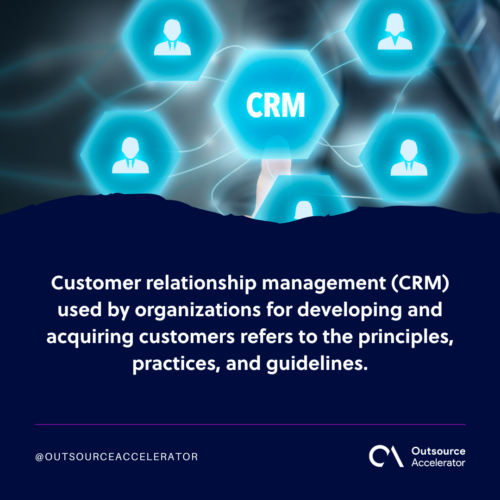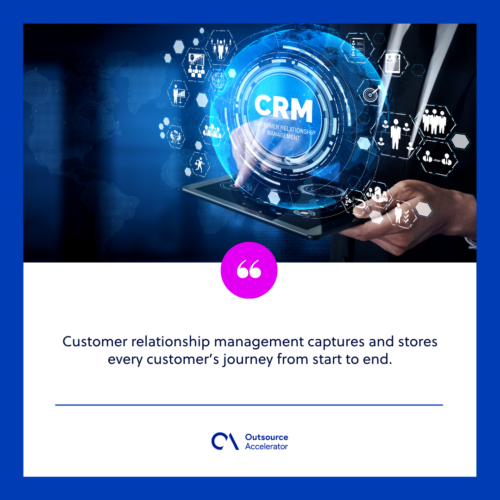Customer relationship management (CRM)
Definition
What is customer relationship management?
Customer relationship management (CRM) used by organizations for developing and acquiring customers refers to the principles, practices, and guidelines.
To develop stronger relationships with customers, customer relationship management is a strategy to learn more about customers’ needs and behaviors.
The customer relationship management (CRM) approach tries to analyze data about customers’ history with a company, to better improve business relationships with customers.
To ensure the increase of overall profit, it also ensures that every step of the interaction with consumers goes efficiently.
When people talk about customer relationship management, they are often referring to the technology that businesses use to manage all their communications and relationships with existing and potential customers.

Benefits of customer relationship management
The benefits of using customer relationship management for your business vary depending on the department using it and the industry. Check out some of the key benefits of CRM for your businesses.
Accurate reporting
With accurate reporting of data, you can see real-time who interacts with your brand.
Businesses can get accurate information about where the sales opportunities are, the trends in their sales, and customer service efforts with the use of CRM.
Improves customer service and satisfaction
Customer relationship management helps you effectively manage all your contacts and leads.
It also helps businesses to get and store continuous feedback from their customers about their products and services.
If a customer experiences an issue with your product or service, multiple teams can work together to solve the issue. In that way, businesses can improve their products and services.
Increase sales
The whole customer relationship management process leads to increased sales or sales productivity. It helps businesses to improve the sales process, and automate their tasks.
Customer relationship management helps your business to get increased sales by assisting you to deliver the right message to your prospects.
When you use customer relationship management, you will get all your customer data ranging from voice, chat, email, and social media communications in one central place.
Engage to build lasting customer relationships
In the modern era, a customer expects not just a reasonably-priced, high-quality product or service.
Customers want to have an engaging experience whenever they get in touch with the brand.
Customer relationship management captures and stores every customer’s journey from start to end. By knowing their preferences and understanding their desires, you can get their loyalty by giving them what they want.

Types of customer relationship management
Organizations must use a CRM system to share the right information with the right people in their workforce, so here are the types of CRM systems that businesses use.
Operational customer relationship management system
Operational CRM is effective for helping businesses to generate leads, and convert them into customers.
It also helps businesses store and organize data, and help the company automate many of your sales and marketing tasks.
Analytical customer relationship management system
Analytical CRM helps businesses to determine the best ways to turn prospects into regular customers.
Professionals that use this type of CRM system for their duties are the top managers, marketing, sales, and support employees.
Collaborative customer relationship management system
Collaborative CRM is also known as Strategic CRM – a system that makes it possible for organizations to effectively share data and information across multiple departments.
It makes the team members right on track. To effectively manage and perform their roles, marketing managers, sales, and technical teams need to access information about the customers.







 Independent
Independent




